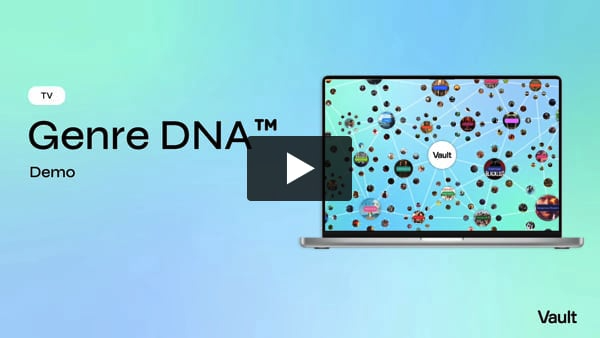Rapid Insights: ‘I Love LA’ Turns Friendship Fails into Gen Z Gold

HBO recently premiered a hilarious new zeitgeist-y comedy that puts a fresh Gen Z spin on a time-tested theme: young adults struggling to make it in the big city. Created by and starring comedian Rachel Sennott, the series follows an aspiring talent agent and her crew of misfit friends as they grapple with the snarky brutality of the Los Angeles scene.
Here’s what you need to know about I Love LA:
Vault AI uses index scores to describe the impact a given story/theme/element will have on specific KPIs:
≤79 Disappointing 80-89 Challenging 90-109 Average 110-119 Promising 120+ Outstanding
What does I Love LA have in common with other shows in this genre?
Its examination of young adulthood. Like its predecessors, I Love LA explores what it’s like to be a self assured-yet-bewildered 20-something struggling to gain purchase in a challenging city, and it focuses on similar coming-of-age storylines around Friendship Conflicts (125), Overcoming Adversity (110), and Bettering Oneself (123). Protagonist Maia and her crew are reminiscent of the lead characters in shows like Insecure, The Bold Type, Adults, and Girls–the Millennial standardbearer for this subgenre–where their Friendships (111), breakdowns (Emotions Running High, 113), and working life struggles create a series of relatable (if heightened) scenarios for viewers of all ages.
What’s making I Love LA stand out?
Its sharp, offbeat sense of humor. Where I Love LA sets itself apart is its tone, which is much more broadly comedic than most other entrants in this subgenre. The show also dives directly into a very modern phenomenon–the world of social media influencers–as it follows Maia’s attempts to become a talent manager for a wildly impulsive childhood friend who found online success. The Awkward Misadventures (160) and Awkward & Funny Moments (140) of Maia and her friends, along with the show’s wonderful sense of Cultural Diversity (132), place it more on par with the recent Gen Z-based Adults than earlier generations’ iterations of this storyline, which often depended instead on tension, drama, and rocky relationships. The comedic elements that make the show feel so unique are also its top viewership drivers and propel all four of its key components: ratings, bingeability, longevity, and social buzz.
Could such a US-specific show find success internationally?
Definitely. Though humor is largely cultural, the hilarious Awkward Misadventures at the center of I Love LA do carry global possibility, with the driver showing an “outstanding” level of potential in markets as varied as the UK (160), Brazil (143), and South Korea (159). Though the show is inextricably tied to Los Angeles in name and setting, viewers everywhere can still identify with its universal themes of coming-of-age goofiness and social media-based madness.
—
Most Popular Rapid Insights
Redefine your understanding of TV subgenres
Introducing Genre DNA™ – TV subgenres redefined by groundbreaking AI analysis to reveal the true drivers of viewership.
See the insights that others can’t
Genre DNA™ goes beyond traditional TV genre classifications by analyzing over 1,000 scripted and unscripted series on both linear and SVOD platforms from the last 5 years.
Each Vault Genre DNA™ report offers a precise analysis of your chosen TV subgenre, uncovering its unique drivers of viewership.
*Publicly released trailers for series are evaluated using Vault’s algorithms – utilizing our proprietary 120K+ story element database alongside viewership performance and other datasets – to identify unique combinations of stories, themes, characters, and genre elements that will drive success.
